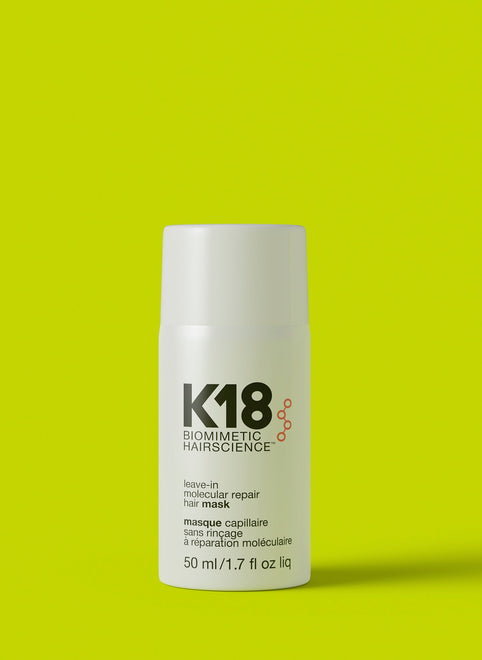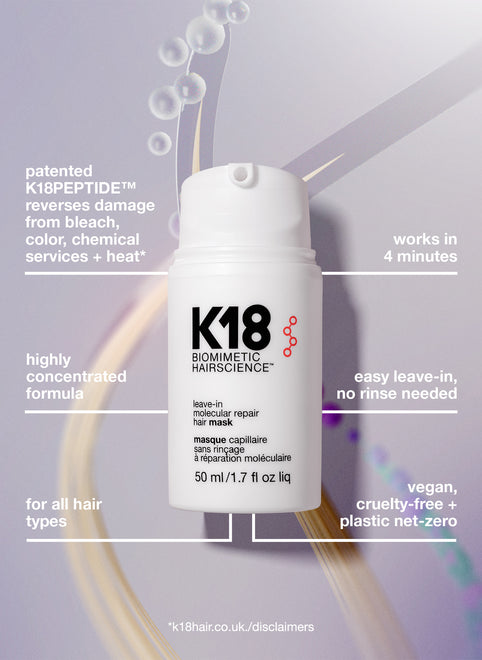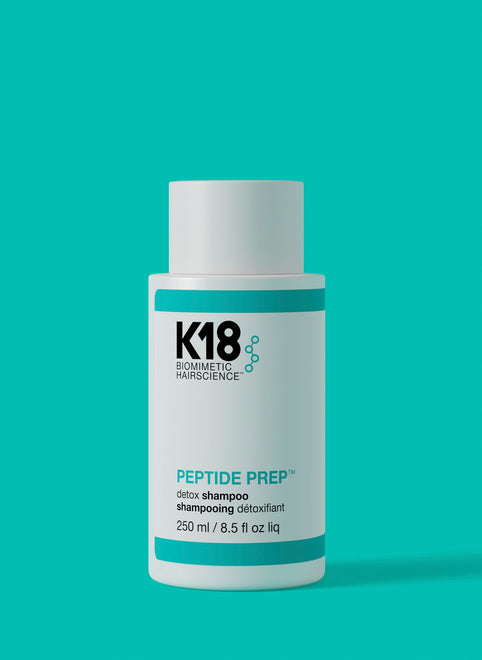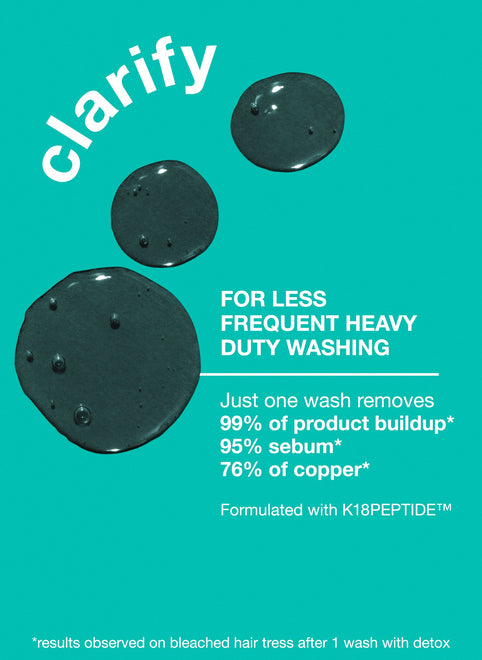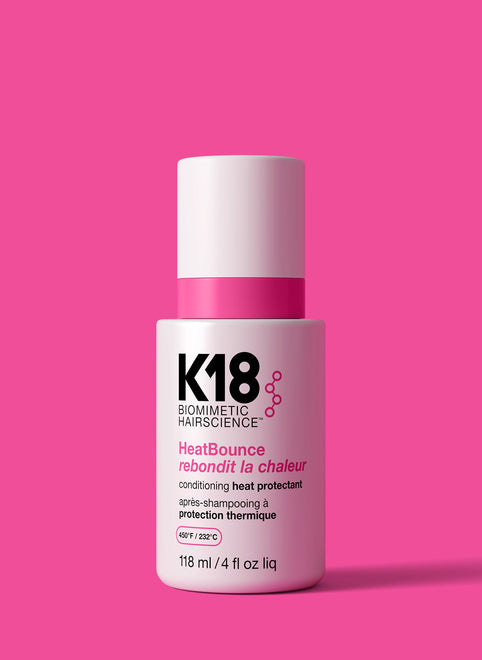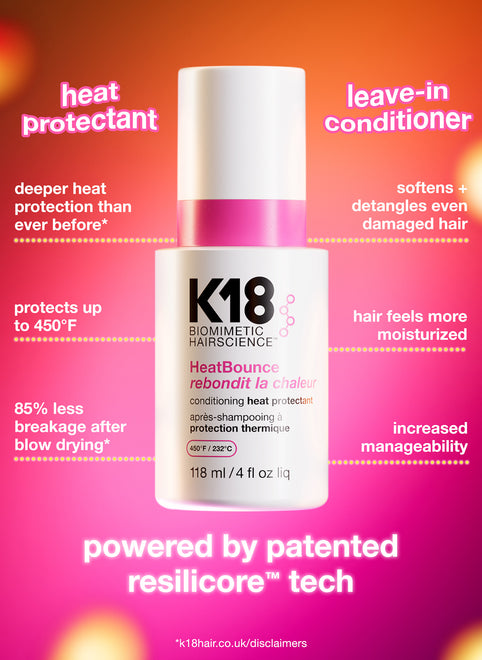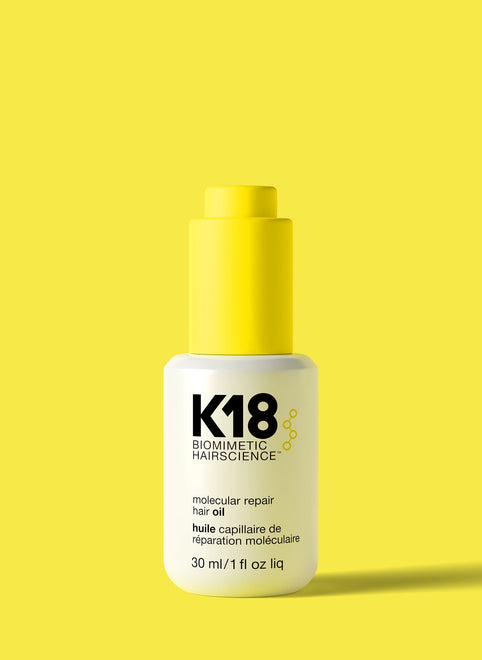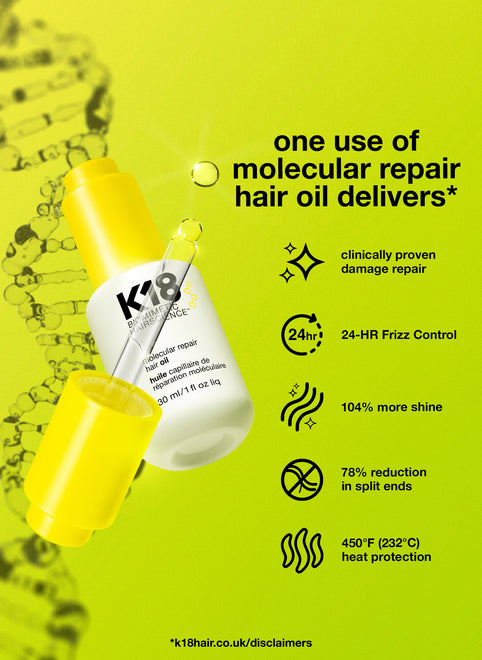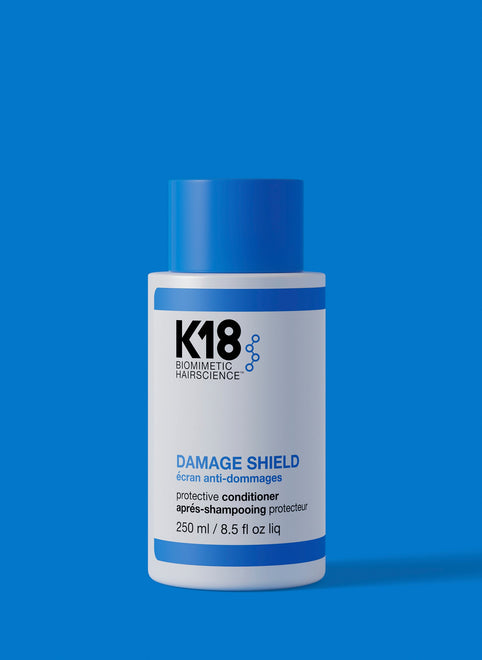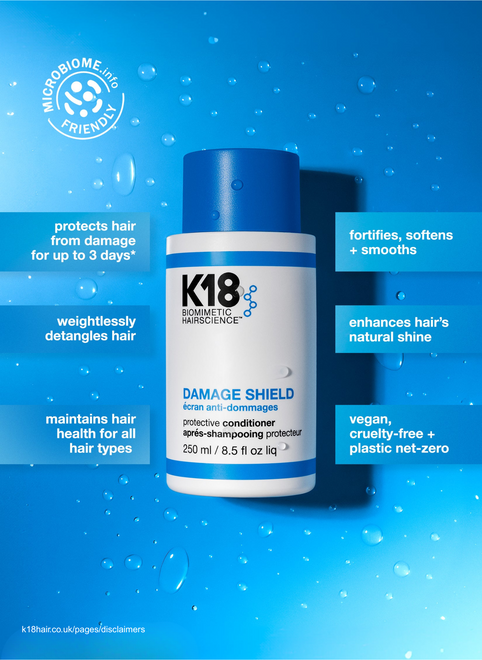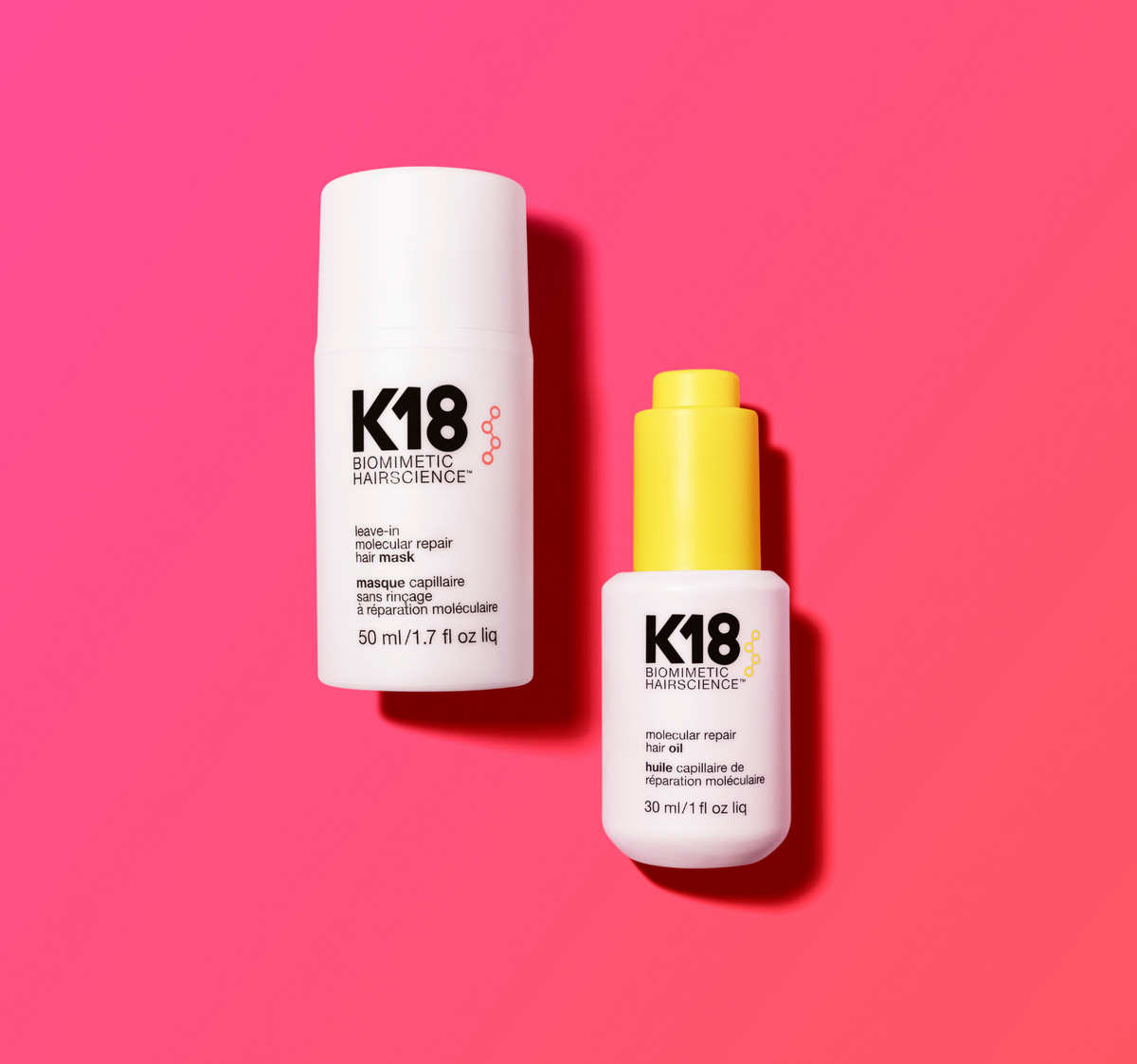From thinning to graying, dive into the science behind how emotional, mechanical, and environmental stressors are impacting you (plus, what you can do about it!).
Stress can show up in countless ways throughout the body—and hair is no exception. From increased shedding to changes in texture or scalp health, the impact of stress runs deeper than many of us realize. Perhaps you’ve noticed extra strands gathering in your brush or your once-glossy hair looking a little duller, flatter, and more brittle than usual? The culprit could be stress.
To better understand what’s happening beneath the surface, we spoke with Dr. Rachael Williams, K18 Sr. Hair and Scalp Scientist, who explains how different types of stress affect hair—and how to help restore equilibrium.
not all stress is the same
Stress comes in many forms—emotional, mechanical, and environmental—and each affects the hair differently, explains Dr. Williams.
Emotional stress, the kind linked to grief, anxiety, or burnout, can trigger hormonal changes that reverberate throughout the body. She explains that when stress activates the hypothalamic-pituitary-adrenal (HPA) axis, cortisol levels spike, disrupting the natural hair cycle and altering sebum production and collagen levels in the scalp.
Then there’s mechanical stress or, “physical damage to the hair fiber from heat styling, brushing, or certain hairstyles,” says Dr Williams. “It can also affect the hair follicle and surrounding scalp tissue due to tension from pulling and tight styles like braids or ponytails.”
Lastly, environmental stress stems from UV exposure, pollution, and product buildup. Over time, this oxidative stress degrades both the hair fiber and the scalp’s delicate barrier, “which, in turn, can negatively affect hair quality and growth.”
stress can shift your hair cycle
Each of us has roughly 100,000 hair follicles on our scalp, and even more across our body. They move through continuous cycles of growth, rest, and shedding—but stress can disrupt that rhythm.
“Elevated cortisol can alter hair follicle cycling and increase sebum production,” says Dr. Williams. “The result is an oilier scalp and a weakened skin barrier, which can accelerate aging and compromise scalp health.”
This hormonal shift can also lead to telogen effluvium, a common stress-induced hair disorder where a higher proportion of hair strands prematurely enter the resting (telogen) phase of the growth cycle.
‘Typically, only 5–10% of hairs rest at a time with normal daily shedding of 100-150 hairs,” says Dr. Williams, but under stress, “that number can jump to over 25%, resulting in noticeable shedding.”
Because hair cycles move slowly, the effects aren’t immediate. “Increased shedding often appears two to three months after the stressful event,” she says. “Fortunately, it’s usually temporary. Hair typically recovers within six to twelve months, though it can take up to eighteen to regain full density.”
Research has “also found that stress exacerbates pre-existing skin conditions (such as psoriasis), and hair loss conditions (such as alopecia areata).”
stress can cause grey hair (but not alone!)
While stress alone doesn’t directly cause greying or hair loss, prolonged exposure to stress hormones can accelerate both. “Sustained stress can cause long-term changes in hair growth, fiber quality, and pigmentation,” says Williams.
There’s also nuance here. “There’s a common misconception that stress alone causes greying, but in reality, hair health is influenced by a combination of lifestyle, environment, genetics, and stress—all of which interact.”
The takeaway: addressing stress holistically is key.
the good news? you can help your hair cope
Managing stress is easier said than done, but small, daily habits can make a measurable difference.
“Identifying what’s causing emotional stress—and finding ways to release it through mindfulness, movement, or professional support—can benefit not only your hair but your overall well-being,” says Dr Williams.
Nutrition matters, too: stress can suppress appetite or fuel cravings for processed foods, depriving hair of essential nutrients. “Prioritising whole foods rich in micronutrients is foundational to hair quality and health,” she adds.
your stress-proof hair protocol
When it comes to your hair routine, strengthening the inner structure of the hair will help it weather stressful seasons and aid in recovery.
The hero product for this is the molecular repair hair mask, which offers comprehensive repair along the length and width of all hair types. Pair it with peptide prep™ detox shampoo, and you’ll also remove product buildup and pollutants linked to environmental damage, including heavy metals from tap water.
To protect against further physical and mechanical stress, Dr Williams recommends “skipping tight styles when you can, and using both HeatBounce and molecular repair hair oil to renew hair strength and minimize breakage.”
On non-mask days, swap in the damage shield protective conditioner, “which defends against UV rays, environmental aggressors, and mechanical damage for up to three days*.”


.png?v=1757009555640&transform=resize=150x150)
